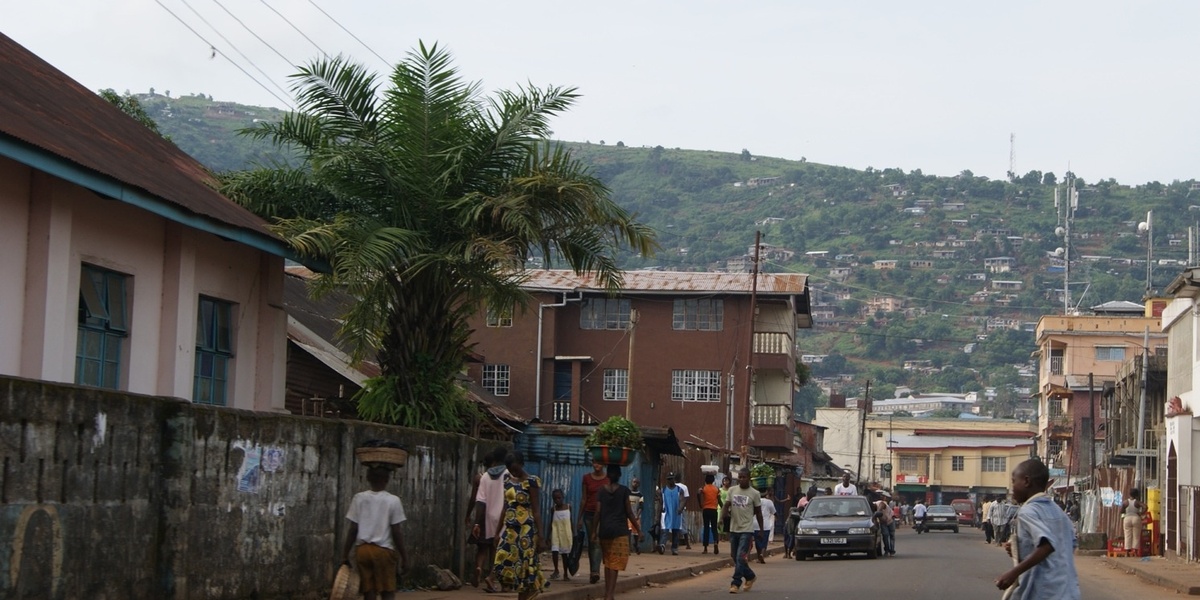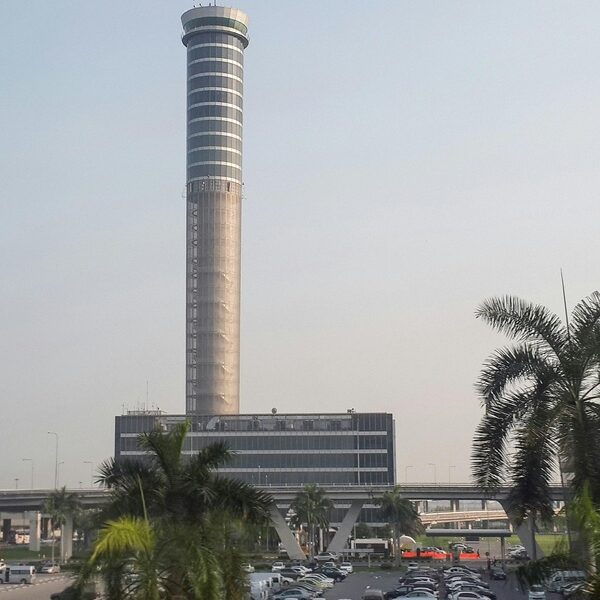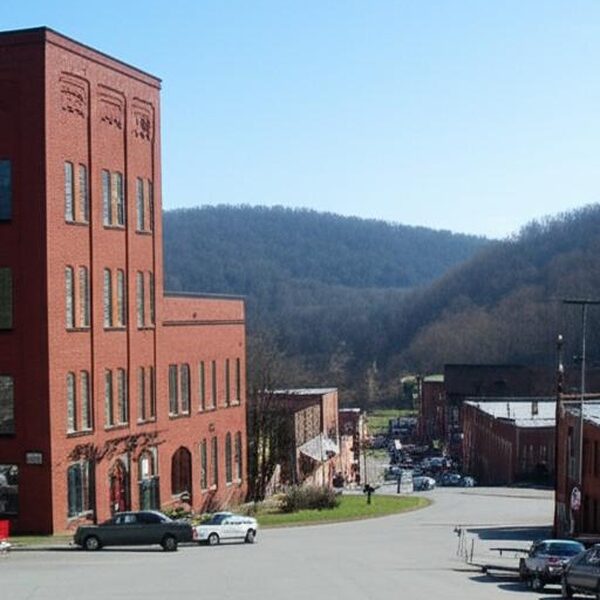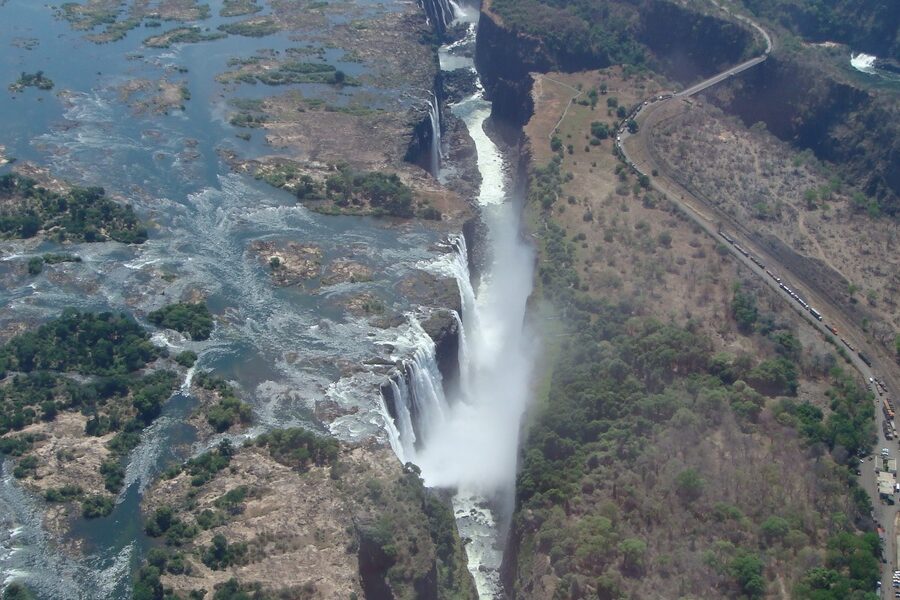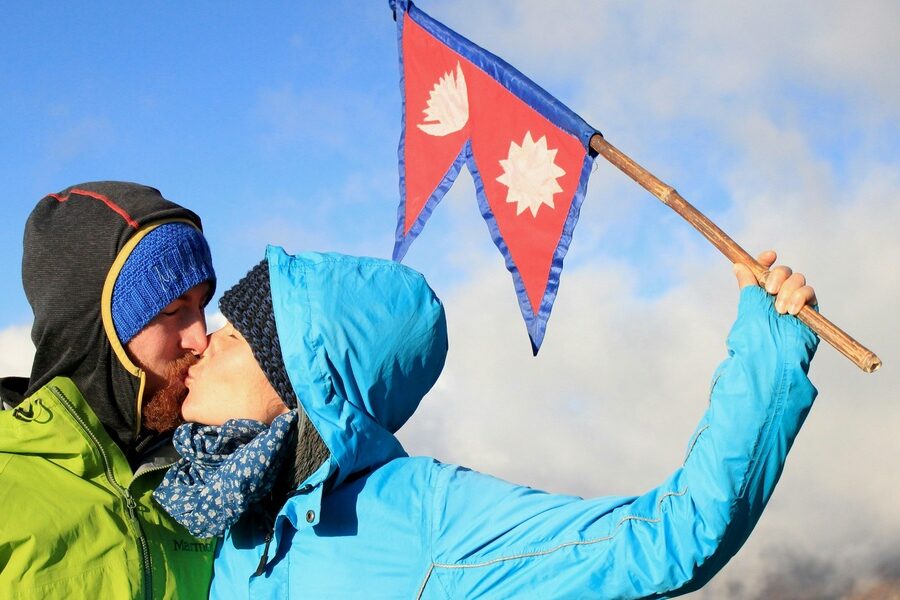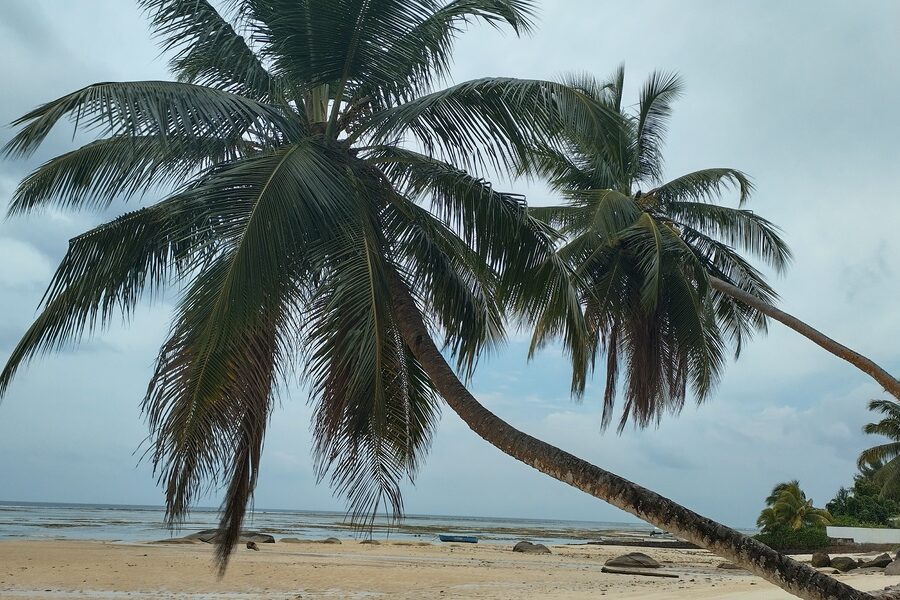Sierra Leone’s towns, markets and beaches are best explored with a few local phrases in your pocket — they ease small talk, show respect and often lead to friendlier service. A little Krio and a few common expressions can turn a routine interaction into a memorable exchange.
There are 55 Useful Phrases for Tourists in Sierra Leone, ranging from “A dae hungry” to “Yu get menu?”. Each entry includes English translation, Phonetic spelling, Context/use so you can quickly find what to say at restaurants, when asking directions or greeting someone — you’ll find them below.
Which phrases should I learn first when visiting Sierra Leone?
Start with greetings, thank-yous and simple questions: hello, how are you, thank you, excuse me, where is…, and numbers for prices. Add restaurant basics and a polite apology; those cover most daily situations and help show respect for local culture.
How reliable are the phonetic spellings for pronunciation?
Phonetic spellings are approximations to help non-native speakers be understood; accents and local variations mean they aren’t exact. Use them as a starting point, listen to locals if possible, and speak slowly and confidently to improve clarity.
Useful Phrases for Tourists in Sierra Leone
| Phrase | English translation | Phonetic spelling | Context/use |
|---|---|---|---|
| Gud mornin | Good morning | good MOR-nin | Morning greeting; hotels, markets |
| Gud aftanun | Good afternoon | good AF-ter-noon | Afternoon greeting; 12pm–5pm interactions |
| Gud nait | Good night | good NITE | Leaving for evening; hotels, nightlife |
| Aw di bodi? | How are you? | ah dee BAW-dee | General greeting; ask shopkeepers, new acquaintances |
| Tenki | Thank you | TEN-kee | After service or help; everywhere |
| Tenki tumas | Thank you very much | TEN-kee TOO-mas | Expressing strong thanks; big favors |
| Plis | Please | PLEES | Polite requests; ordering, asking favors |
| Sori | Sorry / excuse me | SOH-ree | Apologizing or getting past someone |
| Welkam | Welcome | WEL-kum | Responding to thanks; hospitality settings |
| Mi nem na… | My name is… | mee NEM nah | Introducing yourself; first meetings |
| We de toilet? | Where is the toilet? | weh deh TOY-let | Urgent; restaurants, markets, petrol stations |
| We de market? | Where is the market? | weh deh MAR-ket | Finding local markets; shopping |
| We de hospital? | Where is the hospital? | weh deh HOS-pi-tal | Medical help; ask for urgent care location |
| We de police station? | Where is the police station? | weh deh PO-lis STAY-shun | Reporting crime or lost items |
| Tek me go… | Take me to… (transport) | tehk mee goh… | Taxi/tricycle requests; name destination after |
| Ow much di fare? | How much is the fare? | ow MUCH dee FAH-reh | Negotiating transport price; before boarding |
| Go stret | Go straight | goh STREHT | Directions on foot or by vehicle |
| Tek lef | Turn left | tehk LEFF | Following directions while walking/driving |
| Tek right | Turn right | tehk RITE | Following directions while walking/driving |
| Stop ya | Stop here | STOP yah | Telling a driver where to stop |
| Wait small | Wait a moment | wayt SMOLL | Asking someone to pause briefly |
| Mek we go | Let’s go | mek we GOH | Suggesting to leave or start moving |
| A wan rice | I want rice | ah WAHN rice | Ordering food in eateries |
| A dae hungry | I’m hungry | ah deh HUN-gree | Explaining need to eat; asking for food |
| Giv me wata | Give me water | giv mee WAH-tah | Ordering drink; emergencies |
| Yu get menu? | Do you have a menu? | yoo get MEN-yoo | Restaurants and cafés |
| Ow much dis? | How much is this? | ow MUCH dis | Shopping; asking price in markets |
| Gi mi chanj | Give me change | gee mee CHANJ | After paying with large bills |
| A wan buy dis | I want to buy this | ah WAHN buy dis | Shopping at markets or stalls |
| No wahala | No problem | noh wah-HAH-lah | Reassuring or accepting offer |
| Smol smol | Slowly / little by little | smol SMOL | Asking someone to take it slowly |
| Kin a tek foto? | Can I take a photo? | kin ah TEK FOH-toh | Asking permission to photograph people/places |
| Plis wrap am | Please wrap it | plees RWrap am | Asking vendor to wrap purchased items |
| A nor feel wel | I don’t feel well | ah NOR feel WEL | Explaining illness to staff or locals |
| A need doktor | I need a doctor | ah NEED DOK-tor | Requesting medical attention |
| Halp! | Help! | HALP! | Emergencies; attracting immediate attention |
| Call di polis! | Call the police! | Kawl dee PO-lis | Serious safety incidents; theft, assault |
| Faya! | Fire! | FYE-ah! | Alerting others to fire |
| Wan | One | wahn | Counting, shopping, prices |
| Tu | Two | too | Counting, shopping, prices |
| Tri | Three | tree | Counting, shopping, prices |
| Foa | Four | foh-ah | Counting, shopping, prices |
| Faiv | Five | fah-iv | Counting, shopping, prices |
| Siks | Six | siks | Counting, shopping, prices |
| Sev | Seven | sev | Counting, shopping, prices |
| Eit | Eight | ayt | Counting, shopping, prices |
| Nain | Nine | nayn | Counting, shopping, prices |
| Ten | Ten | ten | Counting, shopping, prices |
| Mi kom from… | I come from… | mee KOM from | Introducing origin to locals |
| We di bus stop? | Where is the bus stop? | weh dee BUS stop | Finding public transport points |
| Ow far? | How far? | ow FAR | Asking distance or travel time |
| Di road bad? | Is the road bad? | dee ROHD bad | Checking road conditions before travel |
| Plis show me | Please show me | plees SHOH mee | Asking for demonstration or directions |
| A no sabi | I don’t know | ah noh SAH-bee | Admitting lack of knowledge |
| Di price big | The price is too high | dee PRYS big | Bargaining; expressing sticker shock |
Descriptions
Gud mornin
Friendly, common morning greeting used across Sierra Leone. Use with shopkeepers, drivers, hotel staff. Polite and safe; follow with “Aw di bodi?” or smile. Less formal than English “Good morning,” widely understood and warmly received.
Gud aftanun
Standard daytime greeting used after midday. Useful meeting people, entering shops or restaurants. Polite but casual; you can pair it with a handshake or “How body?” for friendliness. Universally understood in Krio-speaking areas.
Gud nait
Used when saying goodbye at night or entering/leaving lodgings late. Polite and friendly. Not typically used as a hello — reserve for departures or when wishing someone a restful night in guesthouses or with hosts.
Aw di bodi?
Very common Krio way to ask “How are you?” Equivalent to “How are you doing?” Use casually; locals often reply briefly. Good to open conversations and show respect for local language.
Tenki
Simple, everyday “thank you.” Short and widely used—suitable after a meal, receiving directions, or when someone helps you. Add “tumas” for emphasis. Always polite and appreciated.
Tenki tumas
A warmer, emphatic version of thank you. Use for significant help (directions at night, getting medical help, major favors). Shows extra gratitude and friendliness; very well received.
Plis
Direct and short for “please.” Use when asking for something, ordering food, or requesting directions. Politeness matters in Sierra Leone; adding “plis” smooths interactions and shows respect for the person helping you.
Sori
Used both to apologize and as “excuse me” to pass through crowds. Short and common. Polite when bumping into people or interrupting. Not overly formal — fit for markets and vehicles.
Welkam
Often heard from hosts and vendors. Say “welkam” in response to “tenki.” It signals friendliness and acceptance. Used in guesthouses, shops and casual invites — part of warm local hospitality.
Mi nem na…
Simple self-introduction. Use “Mi nem na [Your Name]” when meeting hosts, guides, or new friends. Krio introductions are relaxed; follow with a handshake and “Aw di bodi?” to continue the conversation.
We de toilet?
Essential for travelers. “We de toilet?” quickly locates facilities. People may say “toilet” in English; Krio structure uses “we de” for “where is.” Say politely with “plis” if needed.
We de market?
Ask locals to find the nearest market. Markets are hubs; using Krio shows respect and often gets quicker directions. Add the market name if you know it, e.g., “We de Krootown market?”
We de hospital?
Vital in emergencies. Hospitals may be called “hospital” in Krio. Use clearly and calmly; follow up with “A need doktor” if you need a doctor. Expect directions or an offer to call transportation.
We de police station?
Useful if you need to report theft, lost passports, or request help. Police stations are called “police” or “station” similarly in Krio. People will point or offer to escort you in some areas.
Tek me go…
Common phrase to tell a driver your destination: “Tek me go [place].” Clear and concise. Confirm fare first with “Ow much di fare?” and repeat the destination to avoid misunderstandings.
Ow much di fare?
Ask before starting the trip to avoid disputes. Fares can be negotiated for taxis and private rides. Locals will often counter—be polite, use small bills, and say “plis” when agreeing.
Go stret
Simple navigation instruction used when giving or receiving directions. “Go stret” is clear and commonly understood. Combine with landmarks, e.g., “Go stret till the big tree,” for easier navigation.
Tek lef
Short imperative phrase for drivers or guides. “Lef” and “rait” (right) are used in Krio; drivers and motorcyclists understand these English-based terms easily.
Tek right
Simple directional command. Use with landmarks to avoid confusion. Drivers typically understand English-derived “right” and “left” pronounced in Krio.
Stop ya
Use to indicate you want to get off the vehicle. Short and direct; say politely with “plis” if you prefer. Taxi drivers are used to this phrasing.
Wait small
Small means “a little” in Krio. Useful when asking vendors or drivers to wait briefly. Very common and polite; follow up when ready.
Mek we go
Casual “let’s go.” Useful for group travel, guides, or when leaving markets. Friendly and commonly used; pairs well with “smol smol” for slower pace.
A wan rice
Direct way to order. “A wan…” means “I want…” Use with local dishes like rice, cassava, or stews. Short and practical in small roadside food stalls or local restaurants.
A dae hungry
A straightforward expression to communicate hunger. Useful when asking locals for food recommendations or admitting you need a meal. Polite and relatable; often elicits helpful suggestions.
Giv me wata
Practical in restaurants, shops, or when thirsty. “Wata” is the Krio form of “water.” Use “plis” to be polite. Also useful when requesting bottled water for safety.
Yu get menu?
Ask when menus are available; many places use English menus but phrased in Krio. If none, vendors will point to dishes or call out options. Helpful in small eateries.
Ow much dis?
Straightforward bargaining start. Vendors will respond with a price; you can counteroffer. Adding “plis” and a smile helps. Bargaining is normal in markets.
Gi mi chanj
Ask for change politely when you give larger notes. “Chanj” is commonly used. Vendors sometimes don’t have change, so be ready with smaller notes or ask politely to wait while they find change.
A wan buy dis
Clear and decisive buying phrase. Vendors will wrap or prepare the item. If bargaining, say this after agreeing on a price to finalize the sale.
No wahala
Very common phrase meaning “no problem” or “it’s okay.” Used to reassure someone or accept thanks. Friendly and informal—good to respond with when someone thanks you or apologizes.
Smol smol
Useful when you want to slow the pace of service, walking, or bargaining. “Smol” means “small.” People understand it as “take your time” or “a bit at a time.”
Kin a tek foto?
Polite way to request permission. Many locals appreciate being asked first. Use “plis” for extra politeness. Some religious or private spaces may refuse; always respect wishes.
Plis wrap am
Useful when buying food or gifts to take away. “Wrap am” gets vendors to pack items. Polite and practical; useful for beach purchases and market souvenirs.
A nor feel wel
Helpful to tell a host, driver, or vendor you’re unwell. Useful prelude to asking for medical help. People will often offer water, a ride, or to call someone for assistance.
A need doktor
Direct and serious phrase for emergencies or health problems. Use at clinics, hotels, or with bystanders. Follow with location details and, if possible, request transport or phone contacts.
Halp!
Universal and urgent cry for assistance. Use loudly to alert bystanders. Locals respond quickly in crowded areas. Follow up with specifics (“Call di polis!” or “A need doktor”) as soon as possible.
Call di polis!
Clear command to get authorities involved. Use when immediate help is needed. People may call on a mobile if available or direct you to the nearest police station.
Faya!
Short, urgent shout to warn of fire. Evokes immediate reaction; people will help extinguish or evacuate. Use in markets, kitchens, or lodging if fire is spotted.
Wan
Krio numbers often mirror English but are pronounced locally. Useful in bargaining, ordering single items, or giving quantities. Say clearly when specifying quantities at markets.
Tu
Common numeral used in transactions and directions. Pronunciation is short. Useful when ordering multiple items or negotiating set prices for two things.
Tri
Straightforward number for everyday use. Vendors and drivers understand these basic numerals instantly during bargaining and ordering.
Foa
Local pronunciation for four. Handy for specifying quantities, fares, or item counts in markets and restaurants.
Faiv
Used in bargaining and counting items. Pronunciation is close to English but with Krio cadence.
Siks
Number used for basic transactions and directions; widely understood.
Sev
Useful in markets, taxis, and when giving phone numbers or ages.
Eit
Clear and quick for everyday counting needs.
Nain
Used like English “nine.” Useful when splitting bills or counting change.
Ten
Round number commonly used in pricing and quantities. Helpful when rounding or asking for approximate totals.
Mi kom from…
Polite way to say where you’re from: “Mi kom from [country].” Shows interest in conversation. Locals often respond with curiosity and friendly questions about your trip.
We di bus stop?
Useful when using minibuses or public buses. “Bus stop” is commonly used in Krio. Locals will point or give nearby landmarks to guide you.
Ow far?
Short phrase to ask about distance or expected travel time. Useful before hiring transportation or beginning a walk. People often answer in minutes or by landmarks.
Di road bad?
Ask this when planning overland travel, especially in rainy season. Locals will warn you about potholes, washed sections, or recommend alternative routes.
Plis show me
Useful when you want someone to point out a location on a map or physically show you a place. Polite and direct, often used with “smol smol.”
A no sabi
Polite way to say you don’t know something. Useful in conversations or when a vendor asks a question. Locals appreciate honesty and will usually help find the answer.
Di price big
Polite complaint when a price seems excessive. Common bargaining tactic. Expect a counteroffer; use calm tone and possibly ask “Ow much you want?” to continue negotiating.

